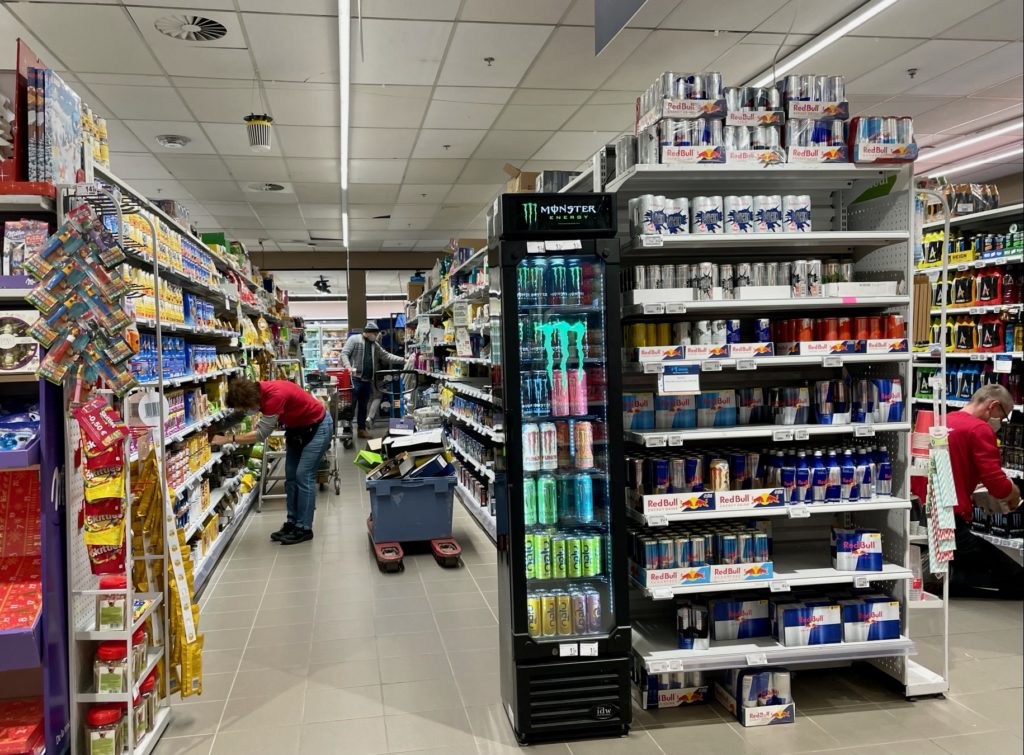The food sector warns that it’s headed for a “historically low profitability of 2.6 percent,” according to Fevia, the federation of the Belgian food industry, and consumers will have to shoulder part of the increasing production cost burden.
A cost explosion has driven up expenses for many food companies, which cite rising prices for natural gas (which rose by 411 percent), container transport (up by 144 percent) and food raw materials (up 32 percent).
Wages for personnel were also cited as a rising cost, though these grew by just 3.2 percent, along with increases in the cost of packaging.
“In all sectors, such as construction, for example, consumers notice a huge increase in prices. Only in food is this not the case,” said Fevia spokesman Nicholas Courant.
Courant said that prices haven’t yet risen in grocery stores, but that the food industry can’t bear the rising costs of production alone.
“Retailers are not paying more and processors are expected to absorb the extra costs,” said Courant.
“Everyone expects us to invest in better, tasty, safe and sustainable products, but on the other hand the margins are getting razor thin. If we want a sustainable food chain, then supermarkets have to pay food companies more.”
Prices are expected to rise next year, according to experts who track global commodity prices, but up until this point in Belgium, most consumers have actually seen a decrease in the cost of many food products.
“Inflation is peaking, but that is not (yet) translating into higher prices for consumer goods. Food and electronics are even getting cheaper,” trade magazine RetailDetail writes.
The Flemish infocentre for agriculture and horticulture (VILT) notes that the prices of food went up in the past year by just 0.47 percent.
“Some categories even show price decreases: fresh fruit is said to have become 4.8 per cent cheaper on average, while other products such as mineral water, baby food and pizzas have also decreased slightly in price,” VILT explained, adding that prices for fresh fish and chocolate have remained stable.
But the retail trade magazine suggests price increases are coming, even if currently delayed.
Related News
- Greenpeace goes on the attack against meat marketing
- Global food prices hit 10-year high
- Carrefour struggled to fill shelves, even after strike ends
“Many retailers and brand manufacturers have warned that they will have to charge higher prices next year. Rising energy prices, current supply problems, the fourth corona wave and higher raw material costs will inevitably, sooner or later, also be passed on to consumers.”
Food companies and supermarkets have been in negotiations with one another.
“The supermarkets are reacting coolly to the demand from the processing companies. They are afraid of being stuck with prices that are higher than those of competing supermarkets. As a result, the chains would have to increase their prices, while the competition between supermarkets has been fierce in recent months,” writes De Tijd, referring to Colruyt specifically as being in conflict with different suppliers.
Competition between Belgian supermarkets is said to be fiercer than ever, and critics have called it a “race to the bottom” in terms of offering the lowest prices to consumers while playing hardball with food company suppliers.
But there is a consensus that prices in supermarkets will soon have to rise for consumers in order to share the burden of those increasing production costs of suppliers.
“We will have to pass on the price increases to our customers,” one supermarket source told De Tijd.

